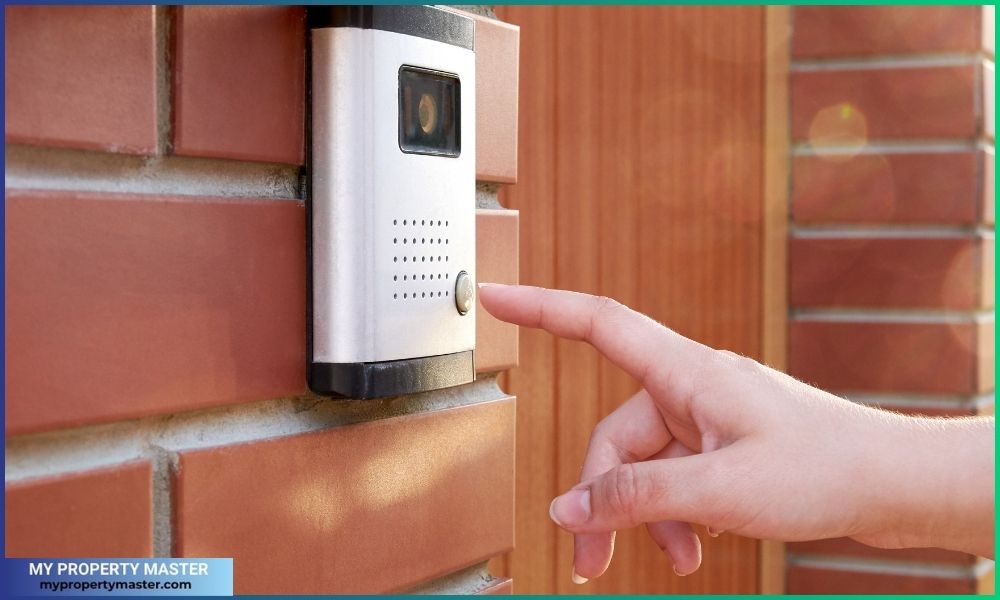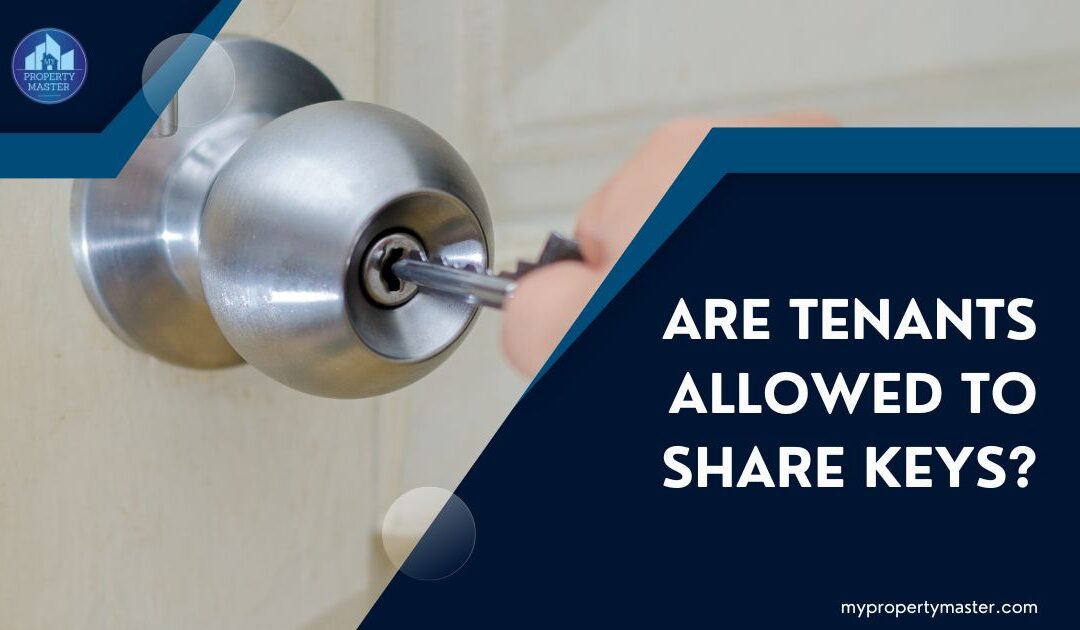There is no such rule or regulation that specifies whether tenants can give keys to their friends. However, lease agreement plays a vital role in this regard.
As a property management company, we found many tenants share keys with others not listed in the lease. So, we had to update our lease to clarify it and secure our rental apartments & belongings.
In this post, I will explain the situation where tenants can give keys to friends or families and where they can’t. I will also explain what you can do as a landlord and how you can protect your rental apartments, belongings, etc.
Are tenants allowed to give keys to friends?

Tenants cannot give keys to friends or anyone not listed in the lease. However, this is not legally binding but a generally accepted rule among landlords and tenants. It also applies to month-to-month contracts.
If the lease agreement contains such a declaration, tenants are legally bound to obey this factor.
Not every aspect is specified in any lease or contract. Some factors are widely accepted based on common sense. Giving keys to someone is one of them.
In summary, tenants can not give keys to someone who does not reside or is listed in the lease agreement, but they can do it with the landlord’s consent.
What landlords can do?
If you are a landlord and your tenant handed out keys to people you don’t know, your first step should be to reach out to the tenant. Tenants are not allowed to sublease with others. So make sure this is not the case for handing out the keys.

You should contact an attorney if the tenant ignores your concerns.
However, if the tenant still has a few months or weeks left on their lease, it would not be too hard to make them understand because of the security money. You can deduct the amount from their deposit if their friends destroy anything on the house.
Proactive measures for landlords

Prevention is better than cure. It’s always better to take preventative actions to decrease the likelihood of needing help from an attorney.
My first advice would be to state everything in the lease. Tell your tenants they are not allowed to share keys with others who do not reside in the home or are not listed in the lease.
But how can you detect if someone violates the agreement?
My next piece of advice is to install a doorbell camera. So you can see/record who is unlocking the door. It will help you detect if someone violates the agreement and check the number of people living inside the rental property.

You can charge a penalty if someone not listed in the lease enters the home (has keys). However, you should specify the penalty amount for key sharing.
As a landlord, you should specify how many guests are allowed, how many days each guest can stay, and how much additional cost is applied if they exceed the duration and number.
Adding and specifying these lease factors will help you protect your rental apartments, investments, and belongings.

Not every aspect needs to be mentioned in the lease agreement. Some depend on common sense.
If a tenant is out of the rental apartment for a couple of days, their pets still need care, plants need watering, and all belongings need security. For these types of scenarios, landlords should allow their tenants to share keys with someone else whom they trust. Moreover, as a landlord, you must ensure that water runs properly without freezing and other chronic living rights.
Frequently asked questions
If a landlord becomes friends with a tenant, the most common problem is getting rent on time and in full. There are other problems as well. In simple words, it’s not worth your rental investment.
Maintaining professionalism between landlords and tenants ensures clear communication and upholds lease agreements. Blurring the lines with friendship can complicate matters, potentially leading to favoritism or privacy concerns. Both parties benefit from clear boundaries, which aid in handling disputes objectively and respecting tenant privacy. While friendly interactions can enhance communication, it’s essential to prioritize professionalism to avoid conflicts and maintain fairness for all tenants.
As a landlord, you typically provide one set of keys to each tenant. This set normally includes keys to the main entrance door of the rented property and any additional entry points, such as back doors or gates, if applicable. It’s important to ensure tenants have access to the property while maintaining security measures. Also, you can provide additional sets of keys upon request or if multiple tenants share the same rental unit.
Yes, tenants generally have the right to make copies of keys to their rented property unless specified otherwise in the lease agreement. However, they should inform the landlord if they intend to do so. Tenants need to ensure that any copies they make comply with local laws and regulations, and they should refrain from making excessive copies or distributing keys to unauthorized individuals to maintain security and safety.
At the end of a tenancy, tenants are required to return all keys to the landlord or property management company. This includes any copies they may have made during the lease term.
The number of guests allowed in a rental property typically depends on the terms outlined in the lease agreement. Landlords commonly include provisions regarding guest policies to ensure all residents’ safety and comfort and prevent overcrowding or excessive wear and tear on the property.
In many cases, lease agreements specify a maximum occupancy limit for both permanent residents and temporary guests. Exceeding this limit could lead to lease agreement violations and potential legal consequences.
Landlords may also establish rules regarding overnight guests, duration of stay, and visitor parking to maintain order and security within the rental property.
The specific number of days depends on the terms outlined in the lease agreement. Typically, landlords may allow guests to stay for a few consecutive days or up to a week without issue. However, longer-term guest stays may require prior approval from the landlord.
For example, some lease agreements may specify that guests can stay for seven consecutive days (maximum) or 14 days within a month. Exceeding these limits could lead to violations of the lease agreement.
Conclusion
Tenants are not allowed to share keys with friends or somebody else who does not reside or is listed in the lease. Sharing keys (without the landlord’s consent) with others may result in a penalty.
Tenants can share keys in urgent situations such as when they are out of home and when their pets need food, plants need watering, etc. However, tenants should tell the landlord before handing out keys to avoid misunderstandings.






